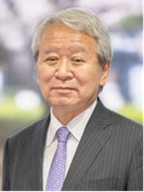Paving the Way to the Africa’s Single Market ~AfCFTA’s Journey for the Last Six-Year and its Future~
August 19, 2025 13:00-14:30(JST)
- Date
- 2025/8/19 (Tue)13:00-14:30(JST)
- Field
- AfCFTA
- Venue / Event Format
- InterContinental / Hybrid (In-person and Online)
- Co-Host
- World Customs Organization(WCO), African Continental Free Trade Area (AfCFTA) Secretariat
Background
Six years have passed since the AfCFTA entered into force in May 2019. Trade based on the AfCFTA officially began on January 1, 2021. As of today, 54 countries have signed and 48 countries have ratified/acceded the agreement. That makes the AfCFTA the fastest such agreement to be ratified since the establishment of the African Union. Article 28 of the agreement stipulates a review every five years from its entry into force, hence May 2024 marked this milestone. At the 37th Ordinary Session of the African Union (AU) Heads of States and Governments Session held in February 2024, an instruction was issued to initiate a review of the agreement; the review is currently underway, led by the AfCFTA Secretariat.
Currently, the AfCFTA Facilitated and Guided Trade Initiative (GTI) is being implemented in 43 Member States to further accelerate full-scale implementation of AfCFTA, and efforts are underway to promote the AfCFTA, including the examination of AfCFTA's operational, institutional, legal, and trade policy environment for specific items in each country. As of November 2024, nearly 1,300 trade transactions utilizing the AfCFTA have been confirmed under the GTI. On the other hand, some technical instruments, such as the annexes on Rules of Origin (RoO), national schedules for tariff concessions on goods, and national schedules for specific commitments on services, are still under negotiation, indicating that some aspects remain in the development stage.
Given the ever-evolving landscape of international trade which may put greater dependence on the importance of regional trade and Africa’s pursuit of stronger economic integration, it is a timely moment to review the AfCFTA, which started with the expectation that it would accelerate Africa's economic development and strengthen competitiveness.
Key Questions
- Key issues identified by each sector for further AfCFTA’s implementation.
- Actions and initiatives needed for that.
Objective
Considering the path to further tariff elimination in the future, and with the newly added challenges, such as tariffs and trade policy uncertainty etc., it will become increasingly important to strengthen cooperation and collaboration among relevant parties concerned with the AfCFTA. Therefore, this event will aim to build a common understanding of the ongoing efforts to overcome challenges that may be preventing the AfCFTA from reaching its full potential and to identify needs and future actions toward the realization of a single African market.
Expected outcomes from this event include: a clear understanding of AfCFTA's progress and bottlenecks, sharing of innovative approaches and good practices towards the utilization of AfCFTA by African countries and institutions, and discussion of international cooperation, importance of African ownership and inclusive partnership among stakeholders both within and outside Africa.
One of the keys to the utilization of AfCFTA is the proper application of complex product-specific Rules of Origin, which the African public and private sectors are facing for the first time. As one of the outcomes of the JICA-WCO Joint Project, 40 Master Trainers (expert trainers), some of them are also WCO Accredited Experts in the field of Rules of Origin, were developed in 21 WCO Member Customs administrations in Africa to implement the AfCFTA. Taking this opportunity, we would also ike to commend the efforts of African Master Trainers in preparaton of the Rules of Origin handbook useful for practitioners and business owners.
Speakers
Opening Session

- Dr. Akihiko Tanaka
- President, JICA

- Mr. Ian Saunders
- Secretary General, WCO
- Dr. Makong Tsotetsi
- Director of Program coordination, the AfCFTA Secretariat
Panel Discussion
- Mr. Naoki Ando
- Senior Vice President, JICA
- Mr. Ian Saunders
- Secretary General, WCO
- Ms. Annette Mutaawe Ssemuwemba
- Deputy Secretary General, the Secretariat of East Africa Community
- Ms. Demitta Gyang
- Director of Customs Administration, the AfCFTA Secretariat
- Mr. Dingani Banda
- Commissioner General, Zambia Revenue Authority

- Ms. Ayako Koizumi
- COO for Africa Division, Toyota Tsusho Corp.
- Mr. David Pilling
- Financial Times(modelater)


